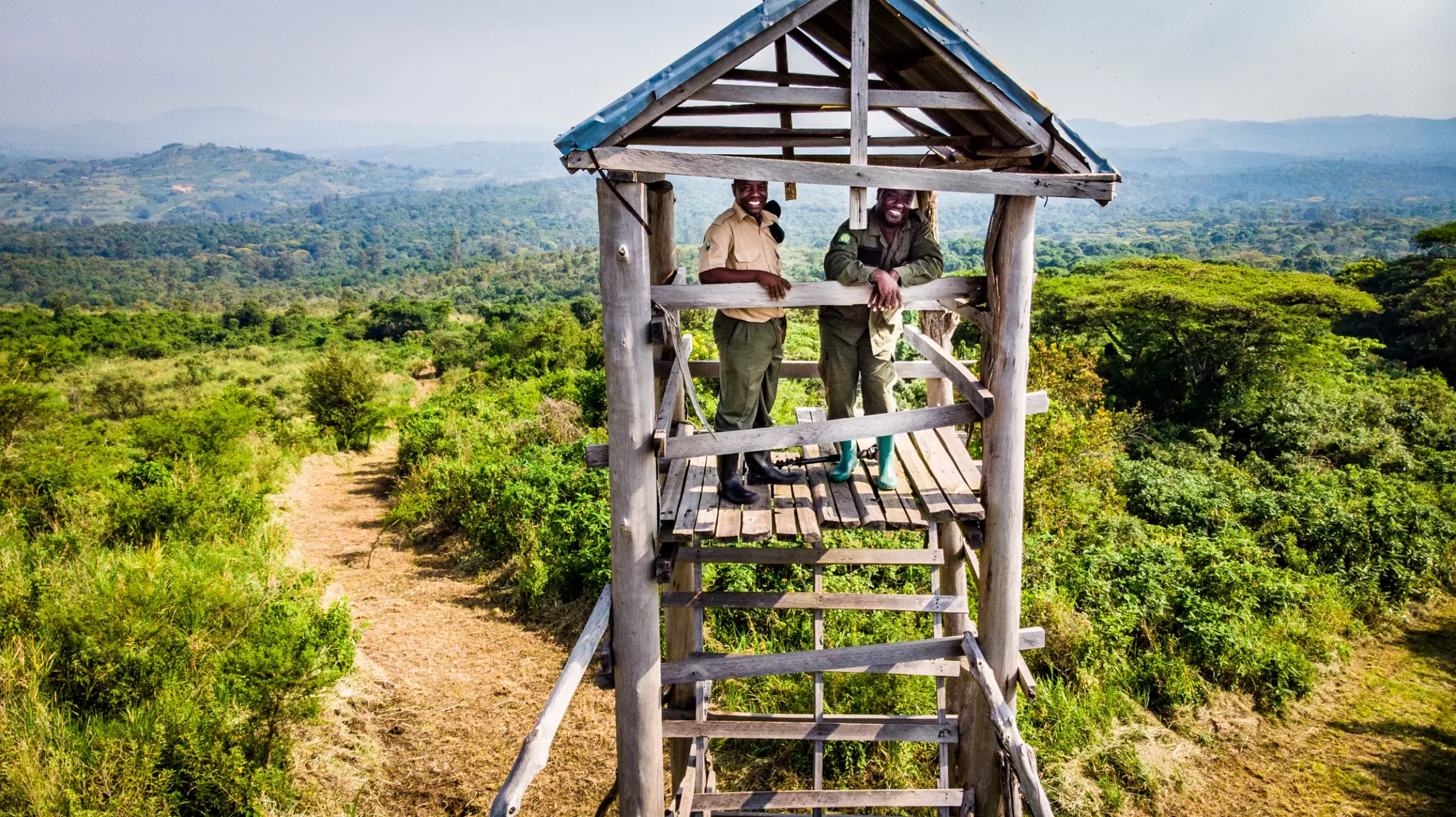Uganda
Trees for All plants native tree species on degraded lands in Kibale National Park. This way we restore the original rain forest.

Trees for All plants native tree species on degraded lands in Kibale National Park. This way we restore the original rain forest.
trees planted
tonnes of CO2 compensated
ha tropical forest restored
people who have work & income
people in total benefiting from the project
By removing the elephant grass and replacing it with seedlings of native species, the forest can revive. This tough work is done by inhabitants of villages adjacent to the National Park. Over 200 villagers help with the planting and maintenance, thus generating jobs and extra income for the local communities. The villagers also maintain the nurseries that deliver the young trees to the project. Furthermore they receive training in starting sustainable activities such as bee keeping and the cultivation of fruits.
Planting will take place on degraded areas withing the boundaries of Kibale National Park
Trees for All collaborates with Face the Future and the ministry of Tourism, Wildlife and Antiquities. This ministry manages and maintains the forest for the long term. Face the Future is a Dutch organisation that has implemented large forest restoration projects since 1990. The Ugandan Wildlife Authority (UWA) is responsible for the management of Kibale National Park and coordinates the reforestation activities on site. The families from adjacent villages warrant the development of the trees to full-grown forest.
“In my opinion planting of trees inside the forest is very important because it creates more rain in this area. I am proud of the progress that we made.”
— Robert Asimwe, self-sufficient farmer and employee of the project